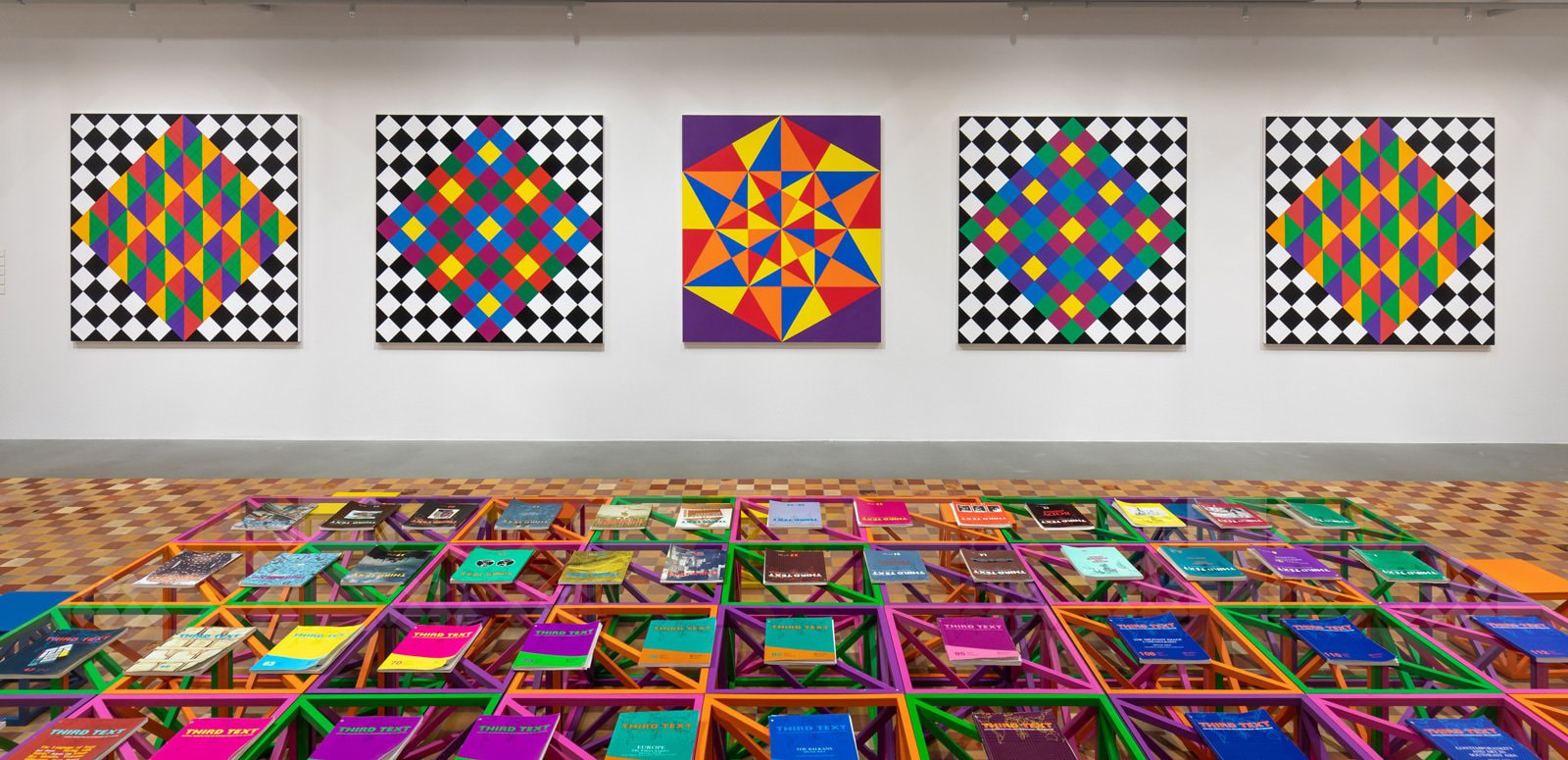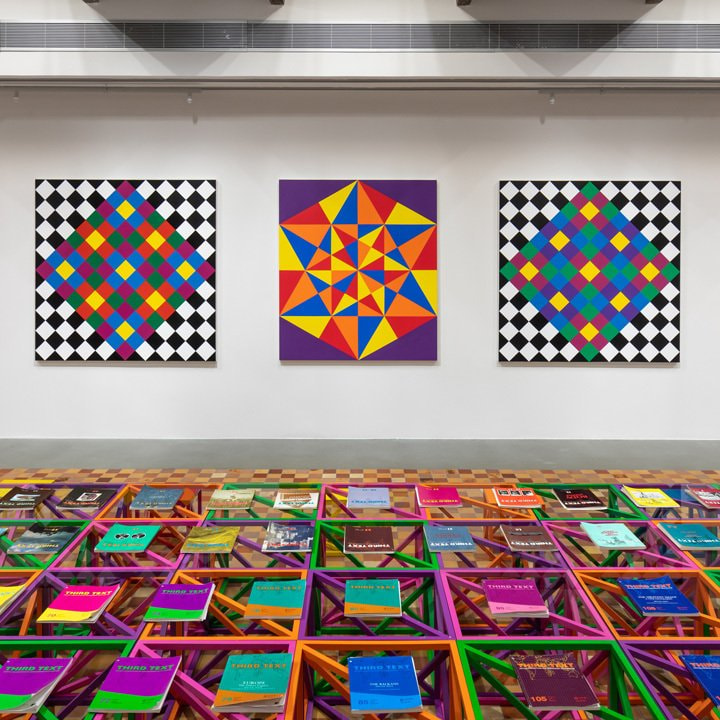Rasheed Araeen and Gayatri Chakravorty Spivak have been partners in the same struggle for many decades, although her name is spectacularly absent, until now, in considerations of Araeen's work.
The first part of the lecture will be a commentary on Araeen’s trajectory as an artist through the years: through the unconditionality of symmetry, the abstraction of Eurocentric modernism, and the concrete conditionality of global violence to the robust (im)possibility of autobiotextuality in Homecoming. The second part will open up into a consideration of how the intellectual can supplement activist art by trying to expand the gender/race/class constitution of subjects who can resonate with “art” for imaginative activism. How might this effort relate to (a) “national” arts in globality and (b) art as investment? In order to expand the focus of art in the production of the will to social justice, Spivak’s work over the last forty years has inevitably turned to the largest sector of the electorate on the Tricontinent, Araeen's "Third World," without the diasporic. This sector, representing democracy as a body count of votes, can be called “subaltern” by expanding only slightly Antonio Gramsci’s definition, “small groups on the fringes of history.” And the subaltern is ungeneralizable, therefore work done on it has to “supplement.” The lecture will dwell on the specificities of Spivak’s use of the word “supplement,” since it describes the new intellectuals mentioned, the globality of “art”, as well as, one hopes, the circuit of art as investment.

